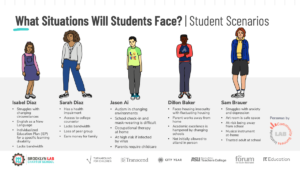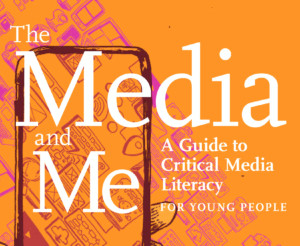Kids, Smart Phones, and Social Media: 6 Rules for Success and Safety

Janice Wyatt-Ross
As a former high school administrator I know all too well the dangers of social media and adolescents. I have mediated plenty of fights, verbal confrontations, and school disruptions due to conversations conducted via social media. When my own children entered middle school I vowed that they would not become members of the social media society. We conducted role-plays around the dinner table about how to avoid conflicts and spreading rumors.
I told tales of work every night that demonstrated how social media posts could quickly get out of control. I told them how Instagram posts of “rates” and “tbh’s” (picture posts asking followers – to be honest) could lead to accusations of bullying and harassment. I shared an incident when Student 1 took a picture of Student 2 and posted it on Instagram. Student 1 asked her followers to rate Student 2’s picture. Student 1’s followers criticized Student 2’s hair, shoes, clothing, and said some very mean, hateful and cruel things. Student 2 was devastated because it was her birthday and she wanted to look pretty for school. For these reasons, I vowed that my children would not have smart phones that gave them access to the Internet and social media cravings.
As soon as my children entered middle school the requests for smart phones began. It’s amusing to reflect back on how firm I thought I would be in not allowing my children to have smart phones. I did relent and allow them to have electronic devices. As soon as they were given iPods the social media frenzy began. After a year of employing certain rules and being consistent in the implementation of the rules they were given smart phones. They do have social media accounts but there are rules and stipulations to having those accounts.
So far, we have only had one major infraction with text messaging and it resulted in a device being confiscated for a month. As an parent who is also an educator, I am proud of how responsible my children have been with social media.
Here are a few of the rules that I have established for electronic device and social media usage that have worked for me.
1. Insist that you, as the parent, always know the passcode for your child’s smart phone.
A passcode is important to have on a smartphone in the event the phone is stolen or if “friends” want to take your child’s phone and hack the child’s social media page and post something.
2. Check text messages.
Scroll through conversations to see what their friends are talking about and how your children respond. If you have questions about the conversation, talk with your child about what you are reading. It is not a secret that I check their devices. I am the parent all day every day.
3. Your child is not allowed to have a social media page unless they follow you and you follow them.
Many parents brag about not being on social media because they don’t have time or they are “not into that.” Parents may not be into social media but your children sure are. To protect your children you have to be knowledgeable of what they are doing and how they are doing it.
4. Have a smartphone curfew.
I take all phones every night at 9:30. I do make exceptions during the summer and on Friday nights.
5. Set restrictions on electronic device usage.
No electronic devices are allowed at the dinner table. No electronic devices are allowed during homework time. No electronic device usage is allowed between 9:30 p.m. and 8:00 a.m.
6. Social media pages must be private.
Instruct your children not to post their full name, birthday, their grade in school, name of school, address, phone number or any personally identifiable information in their profiles. They should not accept follower requests or friend requests from people they do not know. It is a popularity contest to have more than 1000 friends or followers.
At this time in their lives teens and pre-teens want to fit in with their peers. Social media allows them to join in the conversations their friends are having and feel connected to the group. If they are not familiar with what is happening with their peer group, they will tend to feel like an outcast or an undesirable. Also, children have to learn responsibility. Parents cannot do everything for their children nor can we shield them from everything. In my opinion, my children need me now more than they did as infants and when they were in elementary school. They need guidance and direction at this phase of their lives because the choices they make can have long lasting or sometimes tragic consequences. I give them freedom but it is supervised freedom. Just like when they were younger, they were allowed to pick out their clothes for school. Yes they did pick them out but they selected from the outfits I had already pre-selected. This is what I mean by supervised freedom. Their choices are pre-determined. It is okay to let your children experience social media, however parents should be aware of how to seek help when they need it.
The Internet is full of helpful sites to assist parents on how to navigate the world of smart technology and social media. Do your homework. Communicate openly with your child about his or her usage of social media. Don’t be afraid to assert your parental authority. Freely express your expectations of how your child should behave on social media. Help your child be safe.
This blog is part of our Smart Parents Series in partnership with the Nellie Mae Education Foundation. We would love to have your voice in the Smart Parents conversations. To contribute a blog, ask a question, or for more information, email Bonnie Lathram with the subject “Smart Parents.” For more information about the project see Parents, Tell Your Story: How You Empower Student Learning as well as other blogs:
- Growth Mindset Parenting
- 8 Ways Blended Learning Changes the Game
- Everything is Different Now: Parenting for Powerful Learning
 Janice is the mother of two middle school aged girls. She resides in Lexington, Kentucky with her husband of 18 years, Carlos. She has over 20 years experience as a special education teacher and school administrator. Follow her on Twitter @jwross1.
Janice is the mother of two middle school aged girls. She resides in Lexington, Kentucky with her husband of 18 years, Carlos. She has over 20 years experience as a special education teacher and school administrator. Follow her on Twitter @jwross1.






Angie Blackwell
Janice, these are great pointers. Thanks for writing.
Janice
Angie, thanks so much for your feedback.
Kathryn Hayden
Thanks for sharing these are great tips